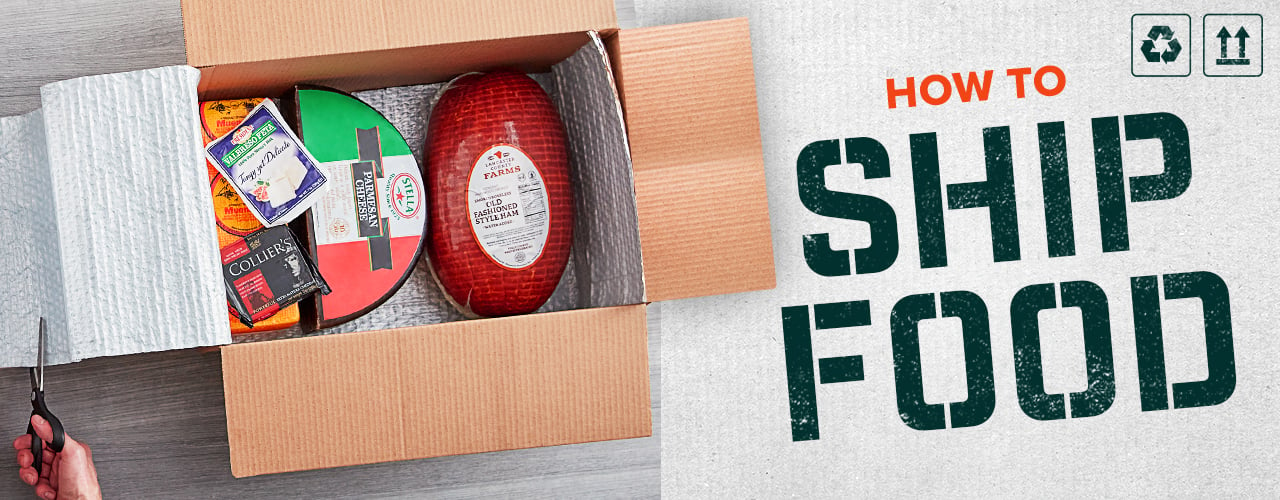To ship refrigerated medicine, use insulated packaging with cold packs and choose an express delivery service. Ensure the package is labeled “Keep Refrigerated” for proper handling.
Shipping refrigerated medicine requires special attention to maintain efficacy and safety. Temperature-sensitive pharmaceuticals need a consistent cold chain from sender to recipient. Utilizing insulated shipping containers with gel packs or dry ice preserves the medicine’s integrity throughout transit. Opting for expedited shipping services minimizes time in transit and reduces the risk of temperature deviations.
It’s crucial to select carriers experienced in handling medical shipments, as they understand the importance of timely and secure delivery. Clearly marking the package alerts handlers to the need for refrigeration, helping to maintain the prescribed temperature range. When planning the shipment, account for the destination’s climate and any potential delays to ensure the medicine arrives in optimal condition.
Basics Of Shipping Refrigerated Medicine
Shipping refrigerated medicine demands meticulous planning to maintain the integrity of the drugs. The process involves using temperature-controlled packaging and expedient delivery services to ensure medications remain within safe temperature ranges throughout transit.
The transportation of refrigerated medicine is a critical task. It demands precision and attention to detail. Strict temperature control throughout the shipment is essential. This process ensures medication effectiveness and patient safety.
Importance Of Temperature Control
Maintaining the right temperature is vital during shipment. It prevents medicine from degrading or becoming harmful. A consistent cold chain minimizes the risk of altered drug efficacy. Shippers use special packaging and monitoring tools to keep medicines within safe temperatures.
- Insulated packaging – Boxes with thermal protection
- Refrigerants – Such as ice packs or dry ice
- Temperature monitors – Devices that record temperature fluctuations
Common Types Of Refrigerated Medicines
Various medicines require refrigeration to stay effective. Some common types of refrigerated medicines include:
| Medicine Type | Use |
|---|---|
| Vaccines | Prevent diseases |
| Insulins | Manage diabetes |
| Biologics | Treat chronic conditions |
| Antibiotics | Combat infections |
:max_bytes(150000):strip_icc()/how-to-defrost-breast-milk-431752_V3-01-f85080184f374a759b2c1106681e7cce.png)
Credit: www.verywellfamily.com
Packaging Solutions For Cold Chain Logistics
When it involves shipping refrigerated medicine, proper packaging is paramount. Medicines need consistent temperatures to remain effective. Let’s explore the top packaging solutions that protect these sensitive products through cold chain logistics.
Insulated Shipping Containers
Insulated shipping containers are essential for maintaining medicine quality. Constructed from materials like polystyrene foam or vacuum-insulated panels, they offer superior insulation. These containers keep internal temperatures steady despite external fluctuations.
Key features:
- Strong thermal protection
- Lightweight for easy handling
- Available in various sizes to suit any product volume
Gel Packs Vs. Dry Ice
Gel packs and dry ice are popular choices for temperature control within shipping containers. Each has unique benefits for different scenarios.
| Gel Packs | Dry Ice |
|---|---|
| Best for: Shorter transit times Pros: Reusable, non-toxic, water-based Cons: Less cooling duration than dry ice |
Best for: Longer transit, deep freeze Pros: Longer-lasting, extreme cold Cons: Requires careful handling, sublimation issues |
When choosing between gel packs and dry ice, consider transit time, temperature requirements, and handling capabilities. Gel packs offer convenience but lower cooling power. Dry ice provides intense cold but comes with more regulations. Both are essential tools in the cold chain logistics arsenal for the safe transportation of refrigerated medicines.
Regulatory Compliance And Best Practices
Regulatory Compliance and Best Practices are crucial when shipping refrigerated medicine. These guidelines ensure that pharmaceuticals maintain their efficacy from production to patient. Manufacturers, logistics providers, and healthcare entities must adhere to strict protocols. Understanding these regulations guarantees safe, effective transport of temperature-sensitive medications.
Fda Guidelines For Pharmaceutical Shipping
The U.S. Food and Drug Administration (FDA) mandates specific procedures for pharmaceutical shipping. These rules guarantee drug safety and potency. Per the FDA:
- Medicines must be stored and transported per label requirements.
- Shipping containers should protect against temperature extremes.
- Continuous temperature monitoring is required.
Failure to comply can result in penalties, including product recalls.
International Standards For Medicine Transportation
For cross-border shipments, international standards apply. Key organizations, such as the World Health Organization (WHO), offer guidelines:
- Maintain product-specific temperature ranges.
- Utilize qualified equipment for cold chain management.
- Implement validated processes for packing, storing, and shipping.
Compliance with these standards is critical for international market access.
Best Practices
Adhering to regulations ensures medicines reach patients safely. Implement these best practices:
| Best Practice | Benefit |
|---|---|
| Use proven packaging solutions | Minimizes temperature deviations |
| Monitor in real-time | Tracks climate conditions during transport |
| Train personnel | Ensures proper handling of shipments |
Periodic audits and reviews of shipping procedures may also enhance compliance.
Monitoring And Tracking Technologies
The right monitoring and tracking technologies ensure the safe shipment of refrigerated medicine. They keep temperatures consistent. Shippers gain peace of mind. These technologies provide vital data in real-time. They alert shippers of any issues immediately. Let’s look into the devices and systems that guard these temperature-sensitive shipments.
Temperature Tracking Devices
Temperature tracking devices play a critical role. They offer precise readings. This data is essential for compliance and safety. Let’s explore types of devices used:
- Data loggers: Record temperatures throughout shipment.
- USB temperature monitors: Allow easy data download post-delivery.
- Wireless sensors: Transmit data to a central system continuously.
Each device type has unique features. Data loggers provide a shipment’s temperature history. USB monitors facilitate post-shipment audits. Wireless sensors offer ongoing insights.
Real-time Monitoring Systems
Real-time monitoring systems are advanced. They allow immediate action. They signal if temperatures deviate. Here’s why they matter:
- Gives instant alerts, contributing to reactive measures.
- Connects to the cloud, securing data access from anywhere.
- Integrates with mobile applications for on-the-go monitoring.
These systems use GPS for location tracking too. They ensure medicines remain safe during transit. They are innovative. They are essential for modern pharmaceutical logistics.
Handling Emergencies And Contingencies
When shipping refrigerated medicine, plans should cover all possible issues. Addressing emergencies and contingencies is vital. This attention to detail ensures critical meds reach those in need without losing their potency.
Protocols For Temperature Excursions
Medicines that require cooling are sensitive. A small temperature change can ruin them. Follow these steps if temperatures rise or fall beyond safe limits:
- Monitor: Keep track of temperatures with advanced devices.
- Inform: Tell the logistics team about temperature issues immediately.
- Evaluate: Check if medicine is still safe to use or if it’s harmed.
- Document: Keep records of temps for each medication batch.
If a serious temperature change occurs, use backup plans. For instance, having extra cooling packs or a secondary shipment ready can save the day.
Strategies For Logistic Failures
When delivering life-saving meds, a logistics fail is not an option. Check out these strategies:
- Identify Alternatives: Always have a plan B for transportation.
- Partner Networks: Build relationships with multiple carriers.
- Real-Time Tracking: Use tech that tracks shipments always.
- Customer Communication: Keep customers updated about delays.
A robust plan keeps meds safe, even if trucks break down or flights get canceled.

Credit: www.webstaurantstore.com
Choosing The Right Shipping Partner
Shipping refrigerated medicine requires precision and partnership with a reliable carrier. The right shipping partner plays a critical role in maintaining the efficacy of your medical products. Let’s delve into how to select a company that ensures safe and compliant transportation of sensitive medications.
Criteria For Selecting Logistics Companies
Not all logistics companies are equipped to handle the delicate nature of refrigerated medicine. When choosing a shipping partner, consider key factors that influence successful delivery:
- Certifications: Should comply with healthcare and safety standards.
- Temperature Control: Must offer advanced refrigeration technology to keep medicines at required temps.
- Experience: Proven track record in handling sensitive medical shipments.
- Real-time Monitoring: Ability to monitor location and temperature during transit.
- Emergency Protocols: Contingency plans for unexpected situations.
Negotiating Terms With Carriers
Securing the best terms with your shipping partner ensures a beneficial agreement for both parties. Key points to negotiate include:
| Negotiation Aspect | Details to Consider |
|---|---|
| Service Levels | Guaranteed delivery times and handling procedures |
| Costs | Transparent pricing without hidden fees |
| Risk Management | Insurance coverage and liability clauses |
| Quality Assurance | Compliance with regulations and quality checks |
Open communication is essential. A clear contract aligns expectations and responsibilities. Lead negotiations with confidence to establish a trust-based partnership.

Credit: www.amazon.com
Frequently Asked Questions For How To Ship Refrigerated Medicine
What Is Refrigerated Medicine Shipping?
Refrigerated medicine shipping involves transporting medication at controlled temperatures to maintain its efficacy and safety. It requires insulated packaging and temperature monitoring throughout transit to ensure the medicine remains within a specific cold temperature range.
How Do You Package Medicine For Refrigerated Shipping?
Pack medicine in insulated shipping containers with gel packs or dry ice. Seal the container tightly and label it as ‘refrigerated medicine’. Use a temperature monitor to ensure the medicine stays within the required temperature range during transport.
What Are The Temperature Requirements For Shipping Medicine?
The temperature requirements for shipping medicine vary based on the product’s specifications. Generally, refrigerated medicines should be kept between 2°C and 8°C (35°F and 46°F). Always follow the manufacturer’s guidelines for specific temperature ranges.
Can You Ship Refrigerated Medicine Internationally?
Yes, you can ship refrigerated medicine internationally with the right preparation. It involves selecting a reliable carrier, ensuring proper packaging, and complying with the destination country’s regulations for medicine imports.
Conclusion
Navigating the complexities of shipping refrigerated medicine can be daunting. Yet, mastering this process is crucial for the safe delivery of temperature-sensitive drugs. By emphasizing proper packaging, reliable carriers, and clear communication, you ensure vital medications reach their destination effectively.
Remember, staying informed and following guidelines is the key to success in this critical task.

